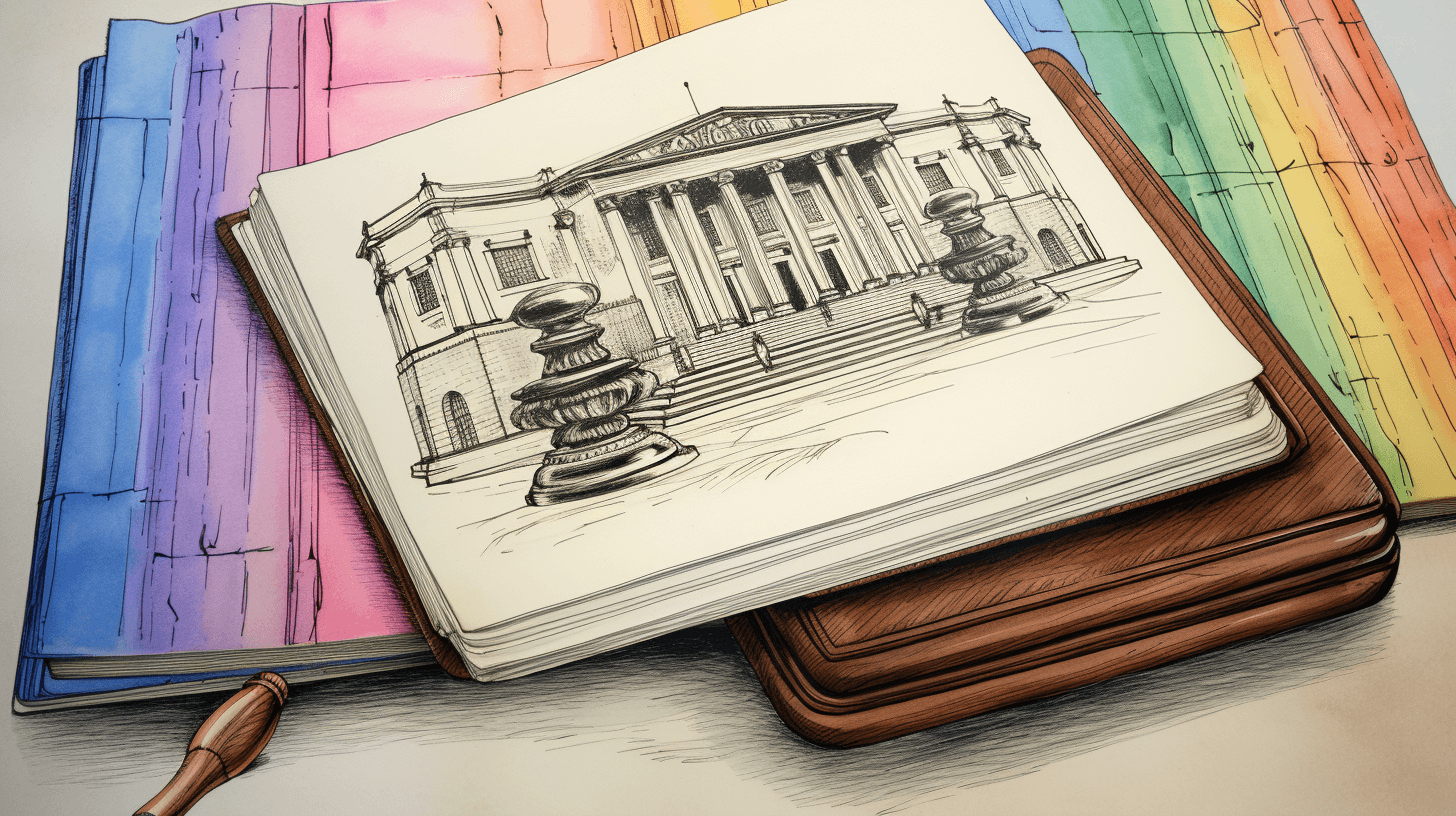🌺 Google Throws Down in Big Antitrust Trial: Defending Da Kine Innovations 🌺
⬇️ Pidgin | ⬇️ ⬇️ English
Aloha, everybody! Let’s talk story about Google, yeah? Dey been going full throttle in dis massive antitrust trial, throwing jabs left and right, showing dey not just one big tech bully. Over da last two and a half weeks, Google wen call about a dozen witnesses to throw down against claims by da Justice Department and some state attorneys general. Dey saying Google was all illegal in how dey did their search and advertising monopoly. Dis trial, one big kine deal, could change da whole tech world.
Google’s lawyers, dey wrapping up their side of da story in the case — U.S. et al. v. Google — on Tuesday. Den da government gonna have their turn for talk back. Judge Amit P. Mehta, running da show at da U.S. District Court for da District of Columbia, he going decide da winner next year after both sides write down their final points and give their last word.
Google’s main defense? Dey wen do everything pono (right) and helped out consumers and competition. 🌐
How Google Justified Their Actions
First off, Google wen pay Apple some big money, but dey say it was all good. Da real beef in da U.S. case is dat Google wen pay Apple and oddah tech guys for be da default search engine on iPhones and oddah gadgets. Dey say dis move wen keep oddah search engines from getting in da game and stopped Apple from maybe making their own search thing.
But Sundar Pichai, da big boss of Google, he wen say on da witness stand dat being da default search engine get plenty value and da deals with oddah companies was smart moves. Google wen shell out $26.3 billion in 2021 for be da top choice on mobile and desktop browsers. Most of dat, like $18 billion, went to Apple.
Pichai wen tell everybody he kept renewing da search engine deal with Apple because it was working out. It wen bring in more searches, more money, and was good for everybody – Apple, Google, and all da shareholders. He said dey paid Apple choke money not for keep Apple out of da search market, but for make sure da user experience on iPhones stay solid.
Google Not Da Only Player in Town
Google’s lawyers wen say oddah search engines had their chance for be da top dog on browsers but couldn’t keep up ’cause their products was junk.
Dey talked about 2014 when Mozilla, da guys who make da Firefox browser, wen break up with Google and went with Yahoo. Dat move no sit well with da users, and Mozilla wen end up going back to Google in 2017.
Da government wen point out Google’s more than 90 percent share in da search market, saying dat shows Google wen choke out da competition. But Google’s lawyers wen say, no way, dey not just about da search market. Dey also gotta scrap with big players like TikTok and Amazon, where people go for find stuffs online.
Da government wen also slam Google for how dey run da online ad game. Google wen say hold up, we fighting for ad money against everybody, from Expedia to Meta, who owns Facebook and Instagram.
How Google Wen Help People and Push Competition
Google wen talk plenty about how dey pour money into research and development, like $40 billion last year. Prabhakar Raghavan, da head of search at Google, wen say all dat investment helps da company bring da bestest technology to users. He said Google get like 8,000 engineers and product managers just for search, including about 1,000 people focused on quality.
Dey wen point out dat their rivals neva invest da same way. Like when dey wen ask Satya Nadella, da boss of Microsoft, in da trial if Microsoft still get fewer people working on Bing, their search engine, than Google get working on theirs. Nadella wen dodge da question and wen say Microsoft is focusing on da main parts of da search business.
Google wen claim dey leading da way in tech advances. Dey wen update their Chrome browser every six weeks, faster than Microsoft wen update Internet Explorer. Dey introduced Android features dat wen make Apple step up their game, resulting in more apps and oddah smartphone goodies.
But da Justice Department lawyers wen try for show dat Google could have brought even more cool stuff to users, but didn’t so dey could protect their monopoly. Dey pointed out dat Google had one idea in 2019 for make one incognito search engine dat wouldn’t store any user data, but dat would have cost Google billions, so dey wen scrap da idea.
Da government wen also talk about how Google sat on generative artificial intelligence until OpenAI released ChatGPT. Dey wen say dis shows Google no really improve their products for
da consumers until dey feel da heat from competition. Da government wen accuse Google of using their power in search and ads for jack up ad prices when dey need more money. Google employees wen say dey balance making money from each ad with making sure da ads stay high-quality.
Google’s Actions Were More Competitive Than Anticompetitive
Da Justice Department wen argue dat Google’s actions wen hurt competition and no help consumers. If da government can prove dat, den Google gotta show dat any harm was outweighed by da good stuff dey did for competition.
Google wen focus on when dey first wen come out with their search engine and oddah products and how dey wen boost competition in those markets.
Back in 1998 when Google wen launch their search engine, da market was dominated by Yahoo, AltaVista, and Ask Jeeves. Google’s Chrome browser, which came out in 2008, wen shake up da browser market where Microsoft’s Internet Explorer was da big kahuna. And Google’s Android operating system, also from 2008, wen make more competition against Apple’s iPhone.
NOW IN ENGLISH
🌐 Google Defends Itself in Major Antitrust Trial: Innovation at the Forefront 🌐
Hello folks! Here’s the scoop: Google has been busy defending its turf against some heavy accusations in a landmark antitrust trial. They’ve been painting themselves as a responsible corporate citizen who’s all about innovation and consumer benefits. Over the past two and a half weeks, they’ve brought in a dozen witnesses to counter the Justice Department and a bunch of state attorneys general. These guys are claiming Google has been playing unfairly, maintaining a search and advertising monopoly. This trial’s a big deal, potentially reshaping tech power dynamics.
Google’s legal team is wrapping up their arguments in the case — U.S. et al. v. Google — this Tuesday, with a government rebuttal to follow. Judge Amit P. Mehta of the U.S. District Court for the District of Columbia is overseeing this trial (no jury involved), and he’s expected to drop his verdict next year after both sides lay out their final written arguments and closing statements.
The crux of Google’s defense? They’re saying what they did was totally justified, and they’ve been helping out consumers and stirring up competition. Let’s dive into Google’s main points.
Google’s Justification for Its Actions
Firstly, Google’s been paying Apple a substantial (though undisclosed) amount of money. The heart of the U.S. case against Google is that the tech giant paid Apple and other platforms to make itself the default search engine on iPhones and other devices. This move supposedly kept competitors at bay and stopped Apple from potentially developing its search product.
But Sundar Pichai, Google’s CEO, argued that being the default search engine is valuable, and these deals were savvy business decisions. Google shelled out $26.3 billion in 2021 to be the default choice on mobile and desktop browsers, with most of that dough, about $18 billion, going to Apple, as reported by The New York Times. Google’s economic expert, Kevin Murphy, testified that they shared 36 percent of the search revenue from this deal with Apple.
Pichai said he renewed the search engine deal with Apple because it was successful, boosting search usage, revenue, and benefiting everyone involved. He emphasized that the payments to Apple were about protecting the search experience on iPhones, not to keep Apple out of the search market.
Google Claims It’s Not the Only Big Player
To counter the notion that other search engines couldn’t compete for default status on browsers, Google’s lawyers argued that rivals had won contracts but couldn’t hold on to them due to inferior product quality.
They pointed to 2014 when Mozilla, the maker of Firefox, ditched Google for Yahoo as its default search engine. This move backfired, with users disliking Yahoo’s user experience, which became ad-heavy. Mozilla eventually went back to Google in 2017.
Google’s lawyers also noted that Google’s dominant market share in search is only part of the story. They emphasized that Google competes with many others, including platforms like TikTok and Amazon, where consumers also seek information.
Google’s Role in Helping People and Competition
Google highlighted its investments in search, arguing these did not harm consumers or others, contrary to the government’s claims. They pointed out their hefty research and development expenditures, totaling about $40 billion last year. Prabhakar Raghavan, Google’s head of search, testified that these investments were vital in delivering top-notch technology to users.
Google also contended that its competitors hadn’t made similar investments. For instance, when Satya Nadella, Microsoft’s CEO, was questioned earlier in the trial, a Google lawyer grilled him on whether Microsoft still dedicated fewer resources to Bing, its search engine, compared to Google.
Google’s Innovations Benefiting the World
Google positioned itself as a trailblazer in tech advancements. They’ve been regularly updating their Chrome browser and introduced Android features that prompted Apple to respond, leading to a surge in apps and other smartphone functionalities.
However, Justice Department lawyers tried to highlight missed opportunities by Google. For example, they brought up a 2019 proposal by Google to create an incognito search engine that wouldn’t store user data but could have cost the company billions in revenue. Google decided against building this browser.
Government lawyers also focused on Google’s delay in introducing generative artificial intelligence to users, arguing that Google only moved when OpenAI released ChatGPT. This formed part of a broader argument that Google didn’t improve products for consumers until they felt competitive pressure.
In sum, Google’s stance in the trial was that while the Justice Department claimed their actions harmed competition, Google believed those actions actually spurred competition and benefited consumers overall. Now, it’s up to the court to decide whether Google’s dominance is a case of illegal monopoly or just good business. 🌐🔎👨⚖️







